By Venetia Rainey in Beirut
DAY 1
This is Sara.
Sara is from Ain al-Hilweh, the largest Palestinian camp in Lebanon, with a reputation for violence and poverty. Sara is 19 and lives with her mother and older brother. Her eldest brother fled to Europe last year to make a better life for himself. Sara is a bundle of energy: she loves the colour pink and dancing, although she says she doesn't get to do that often because there's not enough space in the camp. One of her closest friends is Ahmad, a neighbour who often escorts her when she has to leave Ain al-Hilweh. The camp is pretty socially conservative, so girls aren't really allowed to walk around on their own. When asked about the problems where she lives, she and Ahmad wrote two pages of notes in broken English on the living conditions, the infrastructure, education, safety, and UNRWA.
A few excerpts from Sara's notes:
- Employment: "Very bad. There is no work for many workers and... the graduate students, they graduate and stay at home without work."
- Infrastructure: "Houses and roads are not suitable for human beings... [There are] dangerous power lines at [the] roads."
- Education: We face huge numbers in class and in this way almost [all] students don't understand [the lessons]."
- Safety: "The biggest problem... [there is] no safety in the camp."
- UNRWA: [There are] 120,000 refugees in Ain al-Hilweh. They need help from UNRWA, but this service is [now] just for some people - UNRWA [has] decreased its services such as medical, educational."
DAY 3
The whole of Lebanon suffers from a utilities problem, enduring constant electricity cuts and dirty water, or sometimes no water at all. In the Palestinian camps, supplies are even more erratic and poorer in quality. To make matters worse, people generally can't afford the generators and bottled drinking water that make life more bearable for others in the country. So when the power or water cuts out, cooking and cleaning become impossible.
As you can imagine, illnesses are common, yet accessing health care is often out of financial reach for most camp refugees, three-quarters of whom are below the poverty line and scrape by on less than $6 a day. UNRWA provides free primary health care, but recently announced it was reducing coverage for short hospitalisations such as child birth and intensive care in order to spend more on life-threatening conditions that require longer-term treatment. Although some will benefit, many in the Palestinian community feel it is the beginning of much bigger cuts, and and regular demonstrations have been organised to protest the move. One 23-year-old man even set himself on fire outside an UNRWA clinic – he survived with serious injuries.
DAY 4
Ain al-Hilweh is often described as "lawless" or a "haven for terrorists". The camp is thronging with armed groups, including mainstream political factions such as Fatah and Hamas; Islamist groups such as Osbat al-Ansar, Jund al-Sham and Fatah al-Islam; and more recent additions such as affiliates of the so-called Islamic State and the Al-Qaeda-linked Nusra Front. Clashes occur regularly and assassinations are common. The Lebanese Army controls all the official entrances and exits – waving through only Palestinians with valid IDs or foreigners with special permits – but it leaves control of security within the camp to Palestinian organisations.
To combat the increasingly restive situation in the wake of an influx of some 50,000 Syrian refugees - nearly doubling the camp's population - as well as foreign militants, an elite security force comprising representatives from all the major Palestinian factions was formed in 2014. It has had some success, but fights still break out, and it has done little to tame the Islamist extremist ghettos of Taware and Tameer, where IS flags have been raised alongside posters of the group's leader, Abu Bakr al-Baghdadi. Radicalisation appears to be spreading, and there have been recent reports of young men leaving to join IS in Raqqa. There are also persistent rumours of plans to establish an Islamic emirate in the camp.
For most residents – ordinary people just trying to live a normal life – extremist groups, and the guns and drugs that come with them, are something they strive to avoid. But as conditions in the camp become more and more difficult, so does the task of staying out of trouble.
Armed men are a constant in the camp (Geneva Call/Flickr)
DAY 5
Ain al-Hilweh's population has swollen since the start of the Syrian war (UNRWA/Archive)
Ain al-Hilweh, which translates to 'The Beautiful Spring', couldn't be more different from its name. Less than a square mile in size when it was established in 1948 to house refugees from what is now northern Israel, the boundaries of the camp have not changed despite its population having mushroomed. It was nearly completely destroyed when Israel invaded Lebanon in 1982, and has since been haphazardly rebuilt. As in other Palestinian camps in Lebanon, buildings are cramped and often made out of makeshift materials: breezeblocks hastily cemented together, corrugated tin roofs weighed down with tires, windows covered with plastic sheeting. Roads are uneven and often unpaved, and the crumbling sewage system routinely leaks into the water network. It used to house around 70,000 people, but since the Syrian crisis began in 2011, the population has swollen to 120,000. Much-needed improvements are expensive and take forever, partly due to Lebanese restrictions on building materials allowed into the camp.
SARA'S PHOTOS OF AIN AL-HILWEH
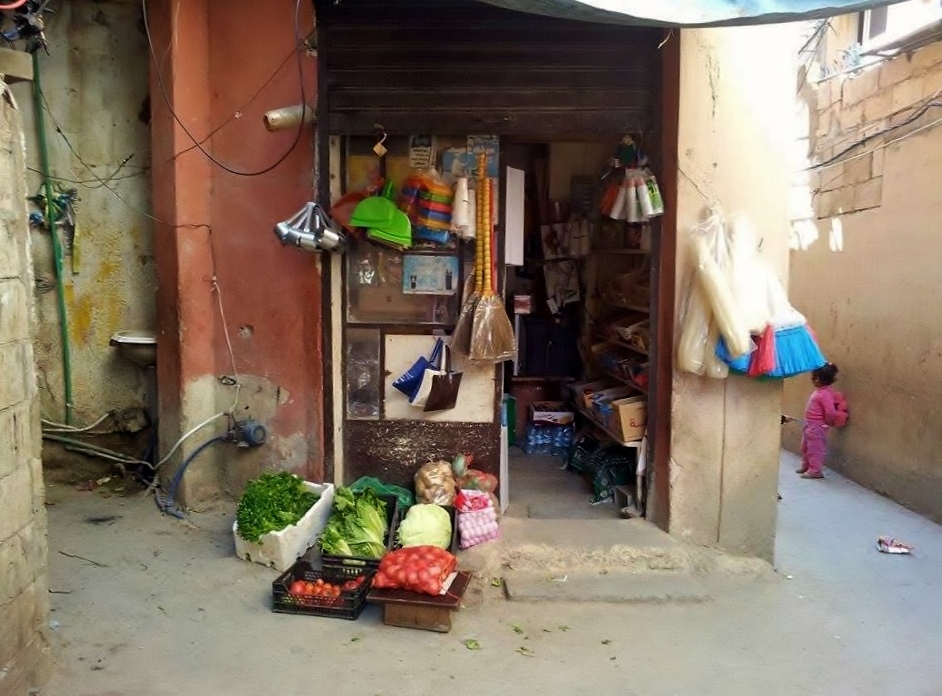
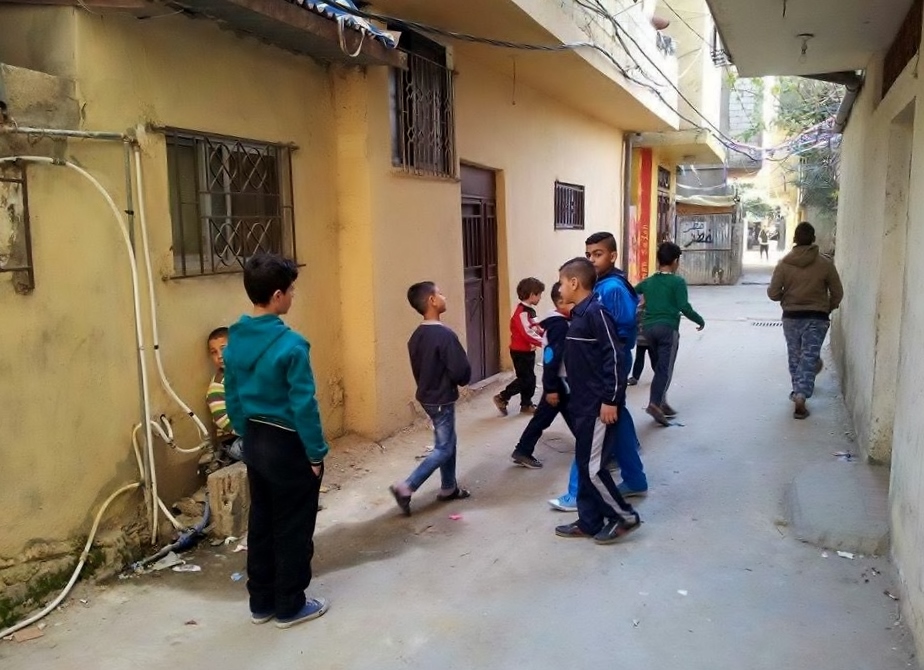
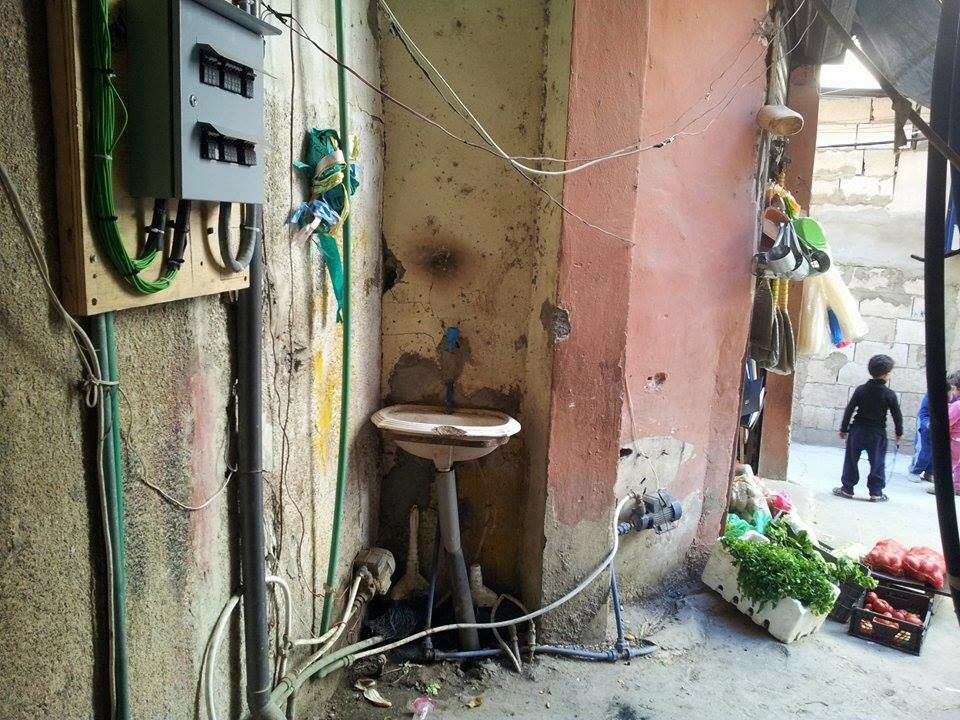
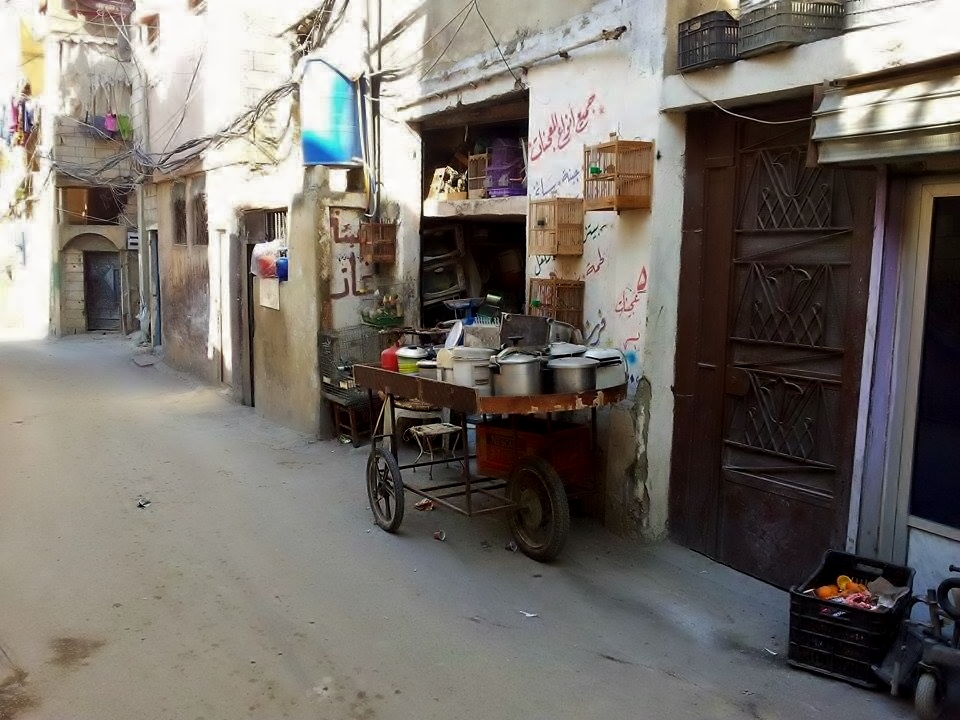
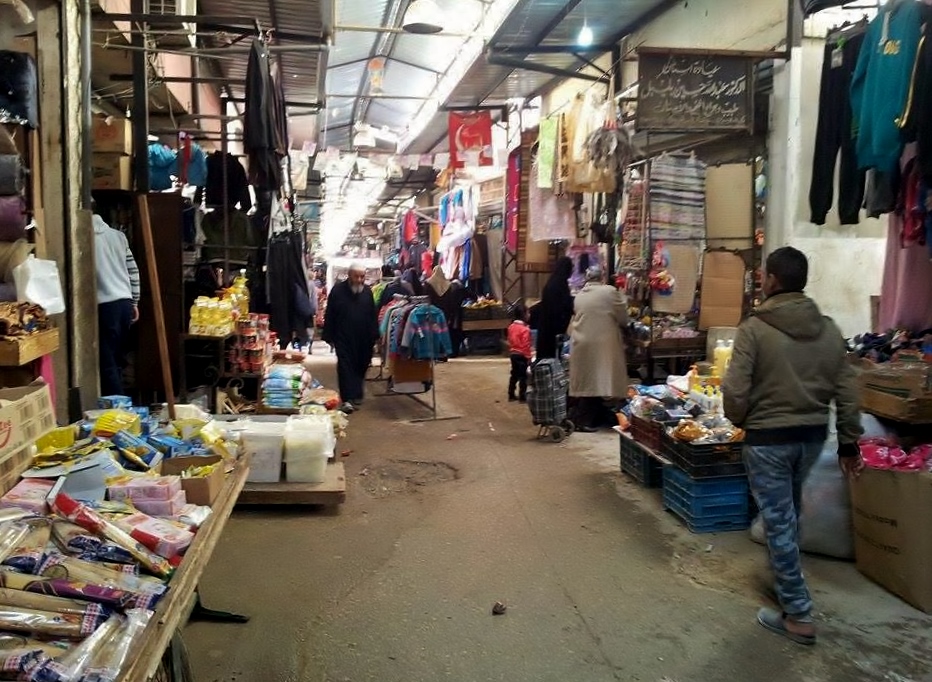
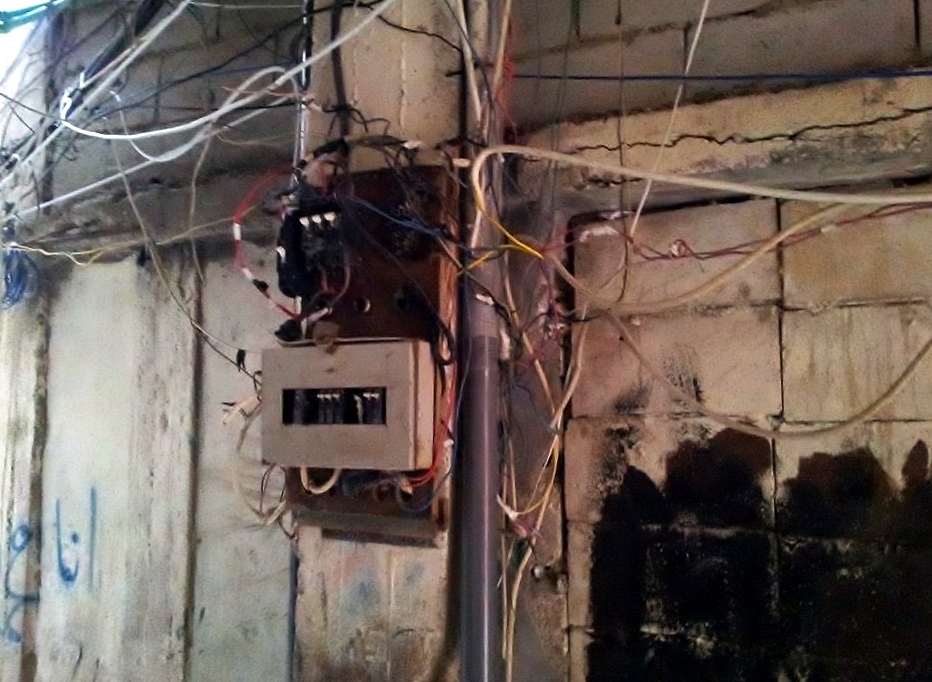
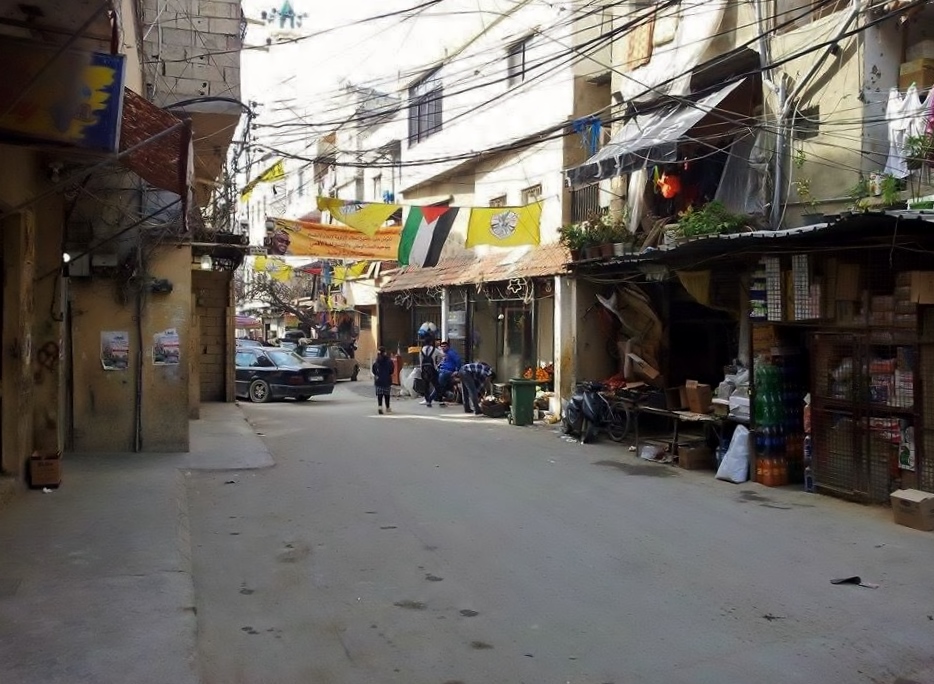
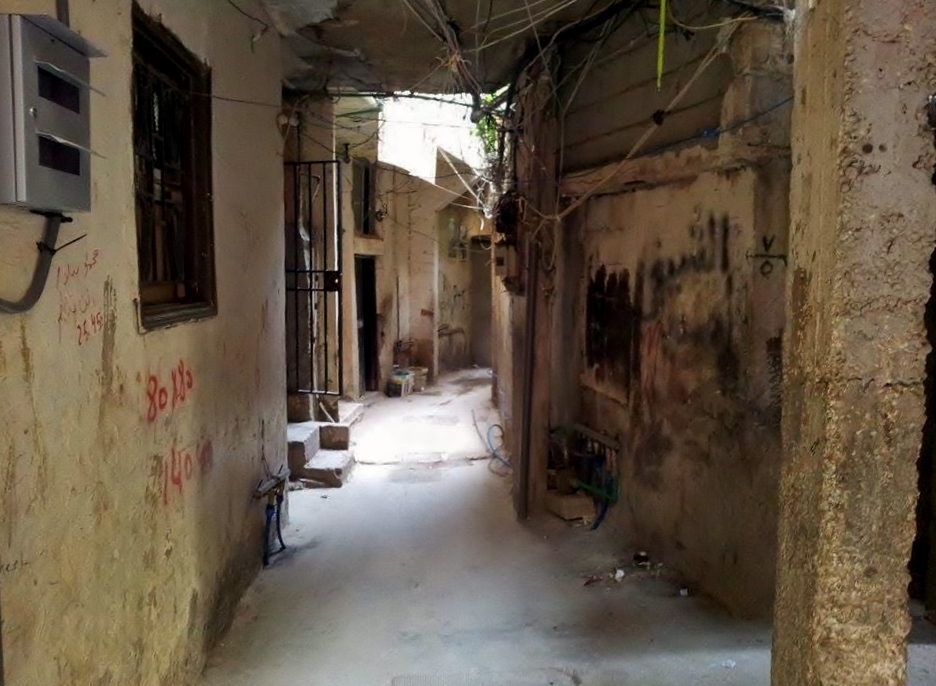

DAY 6
(Venetia Rainey/IRIN)
Sara is a naturally chirpy person, but she admits that camp life gets her down. She dislikes the army checkpoints she is forced to go through just to go into town, and bemoans the lack of cohesion in the camp, where she says things are getting worse every day. She wants a normal life, to be a typical 19-year-old who hangs out with her friends, goes to dance classes, isn't sick and cold all winter, and can walk unafraid in her own neighbourhood. As long as Ain al-Hilweh remains in the grip of poverty and extremism, however, it seems unlikely that things will get better.











